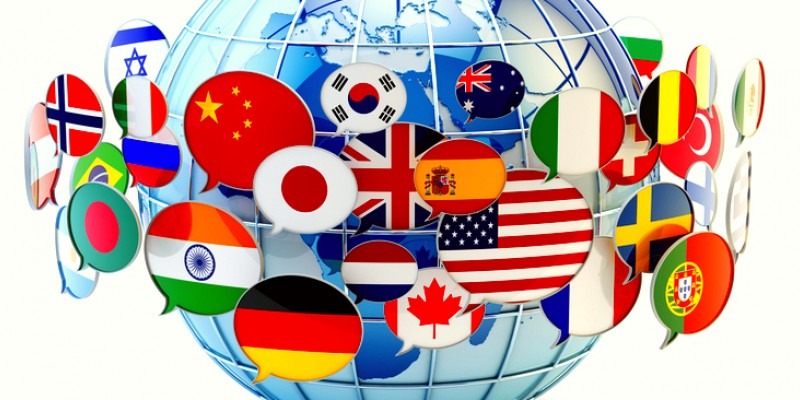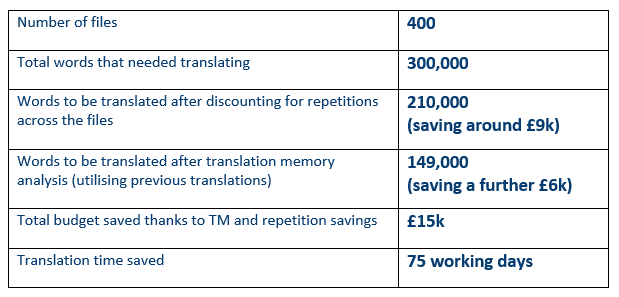
Translation costs are often unavoidable, especially for businesses who want to expand their reach into international markets.
Your brand needs a consistent global voice and no matter where your customer is based, they should have the opportunity to purchase your goods and services with ease and understanding.
So, what is translation memory technology and how can it save businesses money?
When businesses are in the start-up phase or expanding operations, saving much needed funds is crucial. Some businesses choose to enlist the help of a multilingual employee or friend to manage their translations internally.
However there may be times when you need to call on the services of a Language Service Provider (LSP), as busy employees may not always have the time to take on large-scale or complicated translation projects, or speak the languages you really need.
When employing the services of any professional service there are always costs involved, and a translation company is no exception. However, these costs deliver benefits including stress-free translations, quicker turnaround times and higher volume capacity, as well as fully localised content that speaks the language of your customer. But that’s not all…
Another benefit is translation memory. This technology has saved businesses thousands of pounds, and it could help to save you and your business money too.
What is translation memory?
Translation memory is a continually evolving digital library that contains all the translations ever created for a business. It is used alongside computer-assisted translation (CAT) systems and allows the translator to re-use text segments, common phrases and brand language to save them translating words, phrases and paragraphs that have been translated before.
Essentially translation memory remembers client preferences, and helps to increase consistency, lower turnaround time and reduce cost.
Is translation memory like machine translation?
Machine translation is a hot topic in the industry but we still have a long way to go until AI makes a real dent in the role of human translators.
Translation memory and machine translation are very different. Instead of replacing the human, translation memory tools work with the human translator. Everything still has to be translated by a human at least once – the benefit is that once something has been translated, it never needs to be translated again.
How will translation memory add value to my business?
This technology delivers three main benefits:
- Cost: The technology ensures maximum cost efficiency freeing up budgets to spend elsewhere.
- Increased consistency: Inconsistent language can look sloppy, can be confusing, and even misleading. Consistent language is essential for a coherent brand message.
- Faster turnaround: With translator productivity going up, and less words to translate, it means translated content can be delivered to the client sooner.
Can I start using translation memory tools for my next translation project?
Absolutely. Translation memories can be developed for almost all translations. Businesses with regular translation requirements benefit the most from building translation memories for all the reasons mentioned above. It's particularly useful for documents that are regularly updated with similar content such as websites, company reports or contracts.
How do you calculate the savings?
You would calculate savings before translation documents are analysed to show the number of matches. Sometimes these matches are exact, sometimes they’re partial (we call these fuzzy matches).
A higher discount is applied to exact matches, as these only need to be checked in context and not retranslated. Partial/fuzzy matches get partial discounts, as the text needs greater linguist intervention.
The benefits of translation memory in action
This is an example of how translation memory saved Oxfam GB thousands of pounds.
As the files contained a lot of repetitions, the number of effort words reduced from 300k to 210k, saving £9,000. Leveraged translation memory content also saved Oxfam a further £6,000.
About the author
Paul Bickham is managing director of Sure Languages, a multi award-winning translation and interpreting company. The company helps some of the world’s leading organisations communicate in more than 100 languages and has offices in Edinburgh and Exeter. Paul is also a business adviser for Young Enterprise UK in Exeter.
- Log in to post comments
How to get started
To gain access to an experienced International Trade Adviser, who will act as your export guide and give you the confidence to explore or expand in overseas markets, simply contact our International Trade Centre today.
Call us on 01275 370 944

